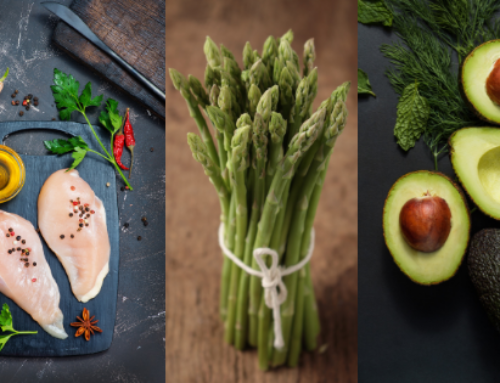Do you have trouble losing weight even though you follow your diet and restrict your calories?
Some research suggests the health of your gut bacteria might be the missing link to chronic weight-loss resistance.
It’s only recently that new genomic techniques have opened the doors to detailed study of our gut microbiome.
Scientists suspect that the make-up of the inhabitants of our guts might help explain why some people put on weight while others stay thin.
One study published in the scientific journal Nature found that weight gain was associated with lack of bacterial diversity.
Every time you have a meal, you’re eating not just for yourself, but for the hundred trillion living microbes that line your large intestine. This live-in colony of microbes, which together can weigh several pounds and consists of hundreds of individual species, is a digestion powerhouse, breaking food down into useful and nutritious components for us and for themselves.
If you find yourself feeling chronically sick and run down, the health of your microbiome could be the reason why. A staggering 75 to 80 percent of your immune system is in your gut! The more diverse your microbiome, the healthier you are going to be.
Hippocrates, the father of modern medicine, said thousands of years ago “all disease begins in the gut.” Science is catching up with antiquity. Many seemingly unrelated health problems are now being lined to underlying gut problems such as diabetes and heart disease.
It seems modern science has finally caught up with what sages and shamans have known for thousands of years. We are intimately connected to the earth. And, we need to rotate our diets throughout the year, and change our eating habits with the seasons.
Many people I speak with eat the SAME food day after day, year after year, regardless of the season. This type of eating will feed only a small population of bacteria in the gut, which can lead to small intestinal bacterial overgrowth (SIBO) and other digestive problems.
Foods like blueberries, broccoli and salad greens are good for you and you should eat them to improve your health, but Not year-round. These foods don’t grow in every season. While the produce selection at the grocery store may not vary throughout the year, eating fruits and vegetables according to their natural growing season can provide a surprising range of benefits, not the least of which is a more diverse microbiome.
Which means better health and a slimmer waistline.
Do you want to know what you should be eating now?
Here’s was local, in-season food list for NJ in early August. SEASONAL FOOD LIST
Give your diet an extra boost and try eating something you haven’t tried before. Here is simple and delicious recipe to get you started:
CLICK HERE to make CHICKEN, CASHEW AND COLLARDS STIR FRY






